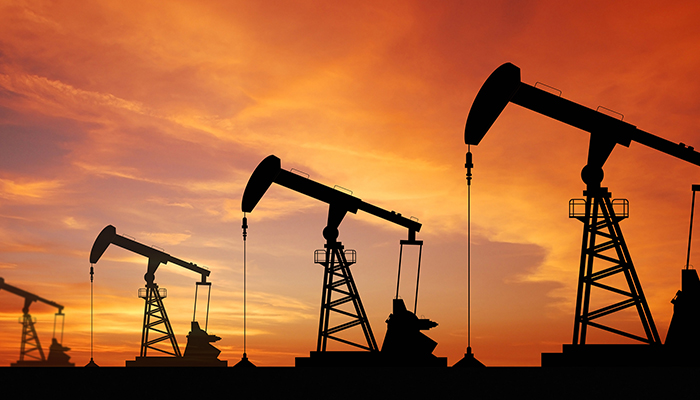
Muscat: World oil prices closed on Friday at their highest levels in nearly two years, after producers agreed to increase supply from April by a smaller amount than expected.
The price of a barrel of Brent North Sea crude for May delivery rose by 3.9 per cent to $69.66 in London, its highest closing price since April 2019.
In New York, the price of a West Texas Intermediate (WTI) per barrel for April delivery rose by 3.5 per cent and reached $ 66.9, the highest closing level in 22 months.
Members of the Organisation of Petroleum Exporting Countries (Opec) and their allies within the OPEC Plus alliance decided on Thursday to increase their production of black gold next month by less than a third of what observers expected.
The 14th Meeting of Opec and non-Opec Ministers took place via video conference on Thursday, March 4, 2021, under the Chairmanship of Prince Abdul Aziz bin Salman, Saudi Arabia’s Minister of Energy, and Co-Chair Alexander Novak, Deputy Prime Minister of the Russian Federation.
The meeting welcomed the appointment of Dr Mohammad Abdullatif Alfares, Minister of Oil, Minister of Higher Education, Chairman of the Board - Kuwait Petroleum Corporation (KPC), and the return of Mohamed Arkab, Minister of Energy and Mines of Algeria.
The meeting emphasised the ongoing positive contributions of the Declaration of Cooperation (DoC) in supporting a rebalancing of the global oil market in line with the historic decisions taken at the 10th (Extraordinary) OPEC and non-OPEC Ministerial Meeting on 12 April 2020 to adjust downwards overall crude oil production and subsequent decisions.
The Opec meeting recognised the recent improvement in the market sentiment by the acceptance and the rollout of vaccine programmes and additional stimulus packages in key economies.
The officials also cautioned all participating countries to remain vigilant and flexible given the uncertain market conditions and to remain on the course which had been voluntarily decided and which had hitherto reaped rewards.
The next meetings of the Opec and non-Opec Ministers are scheduled for March 31 and April 1, 2021, respectively.
Symposium on Energy Outlooks
In February, the International Energy Agency (IEA), the International Energy Forum (IEF) and the Organisation of the Petroleum Exporting Countries (Opec) hosted the 11th IEA-IEF-Opec Symposium on Energy Outlooks to examine the impact of the COVID-19 pandemic on global energy markets and the outlook for global energy security and market stability.
Produced by the IEF and Resources For the Future (RFF), the report posted on the IEF website highlights a reset in energy outlooks after the biggest demand shock in history last year.
“The pandemic’s impact on energy demand is unparalleled in the history of energy markets,” says IEF Secretary-General Joseph McMonigle. “The symposium explored what government policies and industry responses are necessary to safeguard the long-term stability of energy markets.”
Among the report’s major findings were that the pandemic led to oil demand contracting by 9-10 million barrels per day in 2020, but it is expected to rebound by 5-6 million barrels per day this year. The pandemic has also led to a downward revision in long-term annual economic growth by as much as 0.8 percentage points in some outlooks, the report noted.
The Symposium is part of a wider joint programme of work by the three organisations originating from the 12th International Energy Forum held in Cancún, Mexico in March 2010. The Symposium was live-streamed and open to the public.
Dr Fatih Birol, the Executive Director of the IEA, said: “Dialogue and cooperation will be increasingly vital to steer the global energy system towards a future that is fit for tomorrow’s generations, where energy is abundant, affordable, clean and is used to underpin growth and development.”
In his opening remarks to the Symposium, Mohammad Sanusi Barkindo, Opec Secretary-General, recognised the vital contributions of the Opec and non-Opec countries participating in the Declaration of Cooperation (DoC) in helping to stabilise the oil market over the past year, and the importance of close dialogue with the G20, the IEA and IEF in supporting market rebalancing efforts.
He also emphasised the need for continued investment in the oil industry to ensure the stability of supply and to help maintain an inclusive approach to addressing climate change, the energy transition and energy access challenges. "These investments are essential for both producers and consumers," he said.
"In our fast-changing and unpredictable world, we seek to contribute to greater stability, more predictability and enhanced transparency," the Opec Secretary-General told the symposium. "We constantly seek to improve our capacity to do so, for we believe this will help us build a better future, one which serves the interests of generations of producers and consumers," he added.